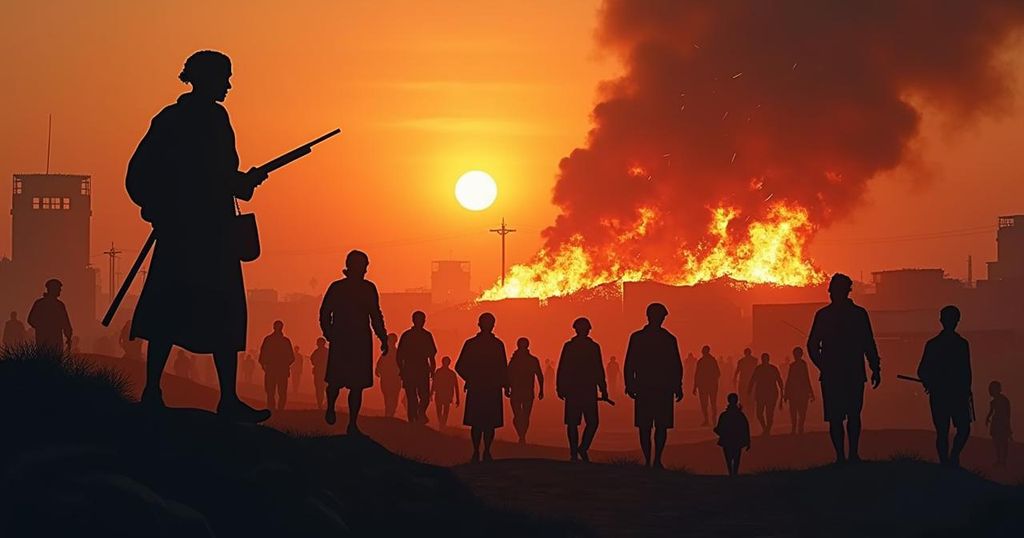Chad’s political landscape is fraught with conflict and power struggles. Following the overthrow of Hissène Habré by Idriss Déby in 1990, Chad has grappled with numerous coups, allegations of corruption, and human rights abuses. Despite becoming an oil-producing nation, the benefits have not reached ordinary citizens. Déby’s rule lasted until his death in 2021 amid ongoing unrest, leading to a transition of power to his son Mahamat. This situation continues to challenge Chad’s road toward stability and democracy.
Chad experiences a complex political history characterized by civil conflict, regime changes, and ongoing issues with human rights and governance. After Hissène Habré’s government was threatened in 1989 by military plots, he was eventually overthrown in 1990 by Idriss Déby, whose forces took control of the capital, N’Djamena. Déby initially promised multiparty democracy but faced numerous coup attempts and rebel offensives throughout the 1990s and early 2000s, despite the adoption of a new constitution in 1996 and elections thereafter. His administration was often marked by accusations of corruption and human rights abuses. Notably, Chad became an oil-producing nation in 2003, yet the revenues did not translate into broader economic benefits for the national populace. As external conflicts emerged, particularly due to the Darfur crisis, Chad became a temporary refuge for displaced Sudanese individuals, leading to further military skirmishes with Sudanese forces. Throughout the 21st century, Idriss Déby maintained power but faced increasing resistance and allegations of electoral fraud. In 2016, significant protests arose against his regime; nonetheless, he was declared the election victor. Revisions to the constitution in 2018 expanded presidential powers, paving the way for Déby to potentially extend his presidency until 2033. Tragically, he was killed in combat with rebels shortly after winning the 2021 election, leading to the establishment of a transitional government led by his son, Mahamat Idriss Déby Itno, without adherence to constitutional protocols.
The history of Chad has been shaped by a series of conflicts and political transitions, often rooted in power struggles among military and political factions. Since its independence from France in 1960, Chad has witnessed multiple regime changes initiated by coup attempts and civil wars. Habré’s rule (1982-1990) was characterized by repression and abuse of power, culminating in his eventual overthrow by Idriss Déby. Following Déby’s rise, despite aspirations for democratic governance, his extended rule has been marred by allegations of discontent, systematic human rights violations, and repression of opposition. Fluctuations in the political landscape have similarly been influenced by external factors, such as regional conflicts and the movement of militant groups.
In summary, Chad’s history is a testament to the continuous struggle for power and governance in a nation beset by internal conflicts and external pressures. The transition from Habré’s despotic rule to Déby’s prolonged presidency underscores the complexity of establishing a stable and democratic political environment in Chad. Déby’s sudden death in 2021 marked yet another pivotal change in the country’s leadership dynamics, casting uncertainty over its political future amidst ongoing challenges related to governance and civil rights.
Original Source: www.britannica.com






